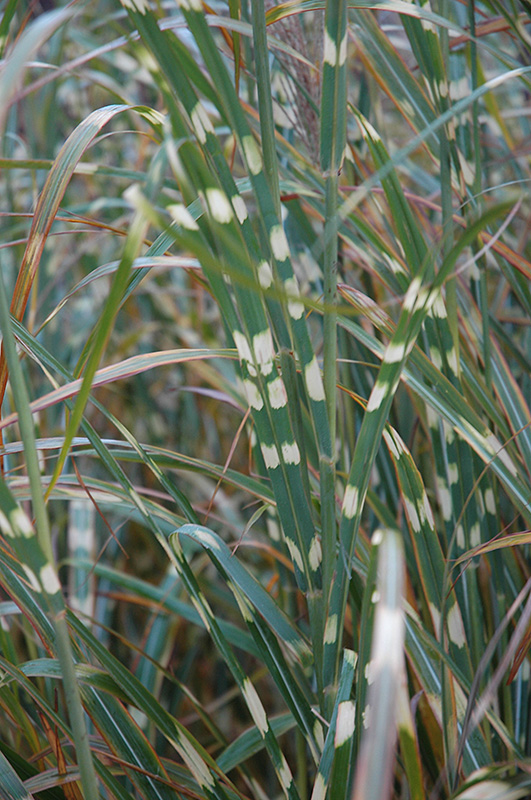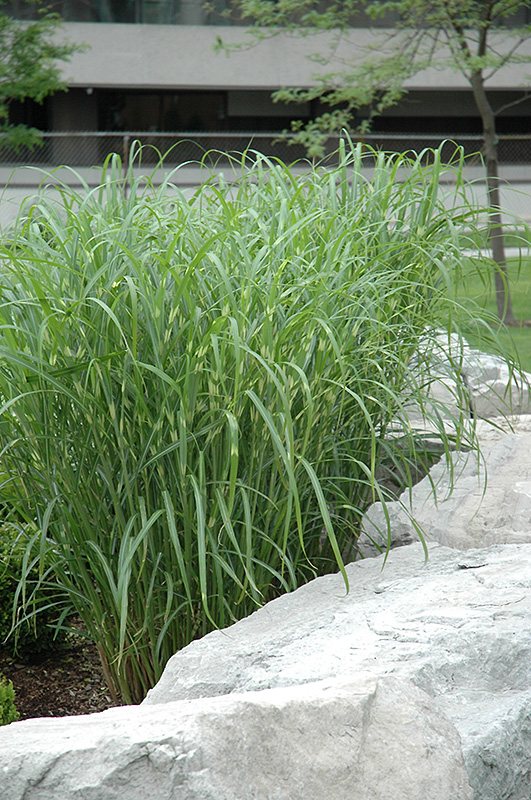Height: 5 feet
Spread: 4 feet
Sunlight:
![]()
![]()
Hardiness Zone: 4
Other Names: Japanese Silver Grass
Ornamental Features
Zebra Grass features bold plumes of coppery-bronze flowers rising above the foliage in late summer. Its attractive grassy leaves are bluish-green in colour with showy yellow variegation. The foliage often turns yellow in fall. The silver seed heads are carried on showy plumes displayed in abundance from early fall to late winter. The brick red stems are very colorful and add to the overall interest of the plant.
Landscape Attributes
Zebra Grass is an herbaceous perennial grass with a shapely form and gracefully arching stems. Its medium texture blends into the garden, but can always be balanced by a couple of finer or coarser plants for an effective composition.
This plant will require occasional maintenance and upkeep, and is best cleaned up in early spring before it resumes active growth for the season. It has no significant negative characteristics.
Zebra Grass is recommended for the following landscape applications;
- Vertical Accent
- Mass Planting
- Hedges/Screening
- General Garden Use
- Groundcover
Planting & Growing
Zebra Grass will grow to be about 4 feet tall at maturity, with a spread of 4 feet. It tends to be leggy, with a typical clearance of 1 foot from the ground, and should be underplanted with lower-growing perennials. It grows at a medium rate, and under ideal conditions can be expected to live for approximately 20 years. As an herbaceous perennial, this plant will usually die back to the crown each winter, and will regrow from the base each spring. Be careful not to disturb the crown in late winter when it may not be readily seen!
This plant does best in full sun to partial shade. It prefers to grow in average to moist conditions, and shouldn't be allowed to dry out. It is not particular as to soil type or pH. It is highly tolerant of urban pollution and will even thrive in inner city environments. This is a selected variety of a species not originally from North America. It can be propagated by division; however, as a cultivated variety, be aware that it may be subject to certain restrictions or prohibitions on propagation.








